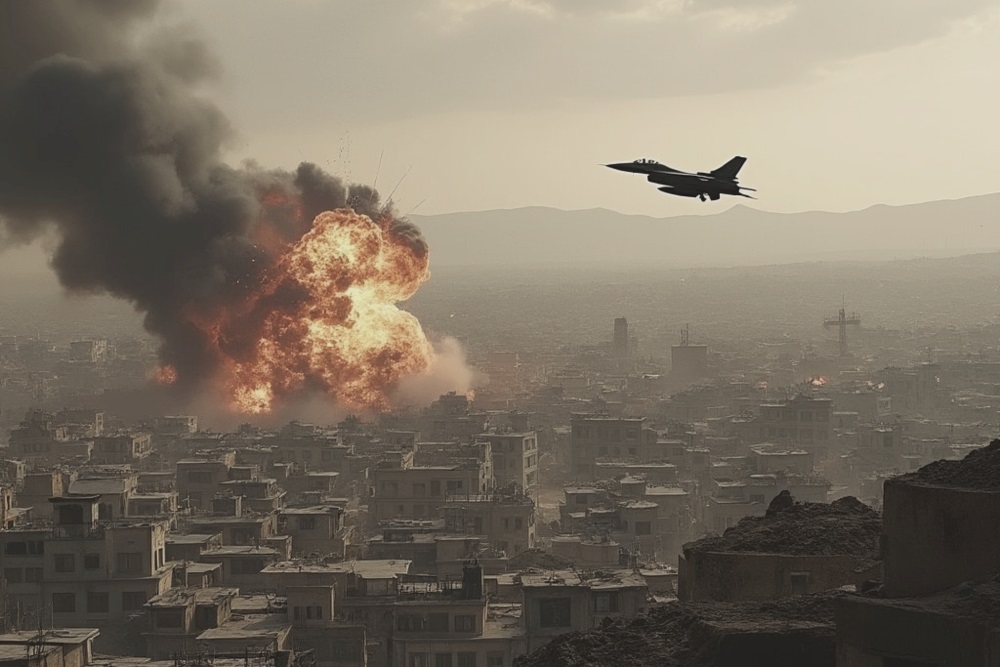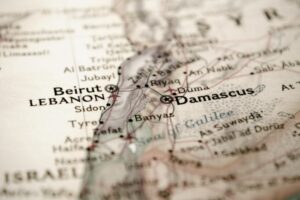
The IDF prepared for a specific kind of war in Lebanon, but what unfolded was a completely different military conflict – one that misled and confused Hezbollah. By the time the organization realized the full extent of Israel’s plan, it was already too late.
For years, defense officials and observers predicted that a war would erupt in full force, with Israel or Hezbollah initiating an intense conflict. The IDF was expected to quickly launch a ground invasion into Lebanon and an intensive bombing campaign. In parallel, Hezbollah would retaliate with heavy rocket barrages, possibly thousands per day over several weeks.
Instead, the IDF launched a phased war without making an official declaration, says military journalist Yossi Yehoshua. Rather than unleashing its full force from the start, the IDF escalated the conflict gradually, focusing on different aspects of Hezbollah’s operations one phase at a time.
Hezbollah, locked into its own war doctrine, completely misread the Israeli strategy. The group believed each phase was an isolated event rather than part of a larger plan. This miscalculation played into Hezbollah’s belief in its own “deterrence equations,” the guiding principle of its strategy. [Here’s a detailed report on the collapse of Hezbollah’s strategy]
Throughout this period, Hezbollah’s responses remained limited. Its leader Hassan Nasrallah appeared to believe he was containing the conflict to a series of low-intensity clashes. In reality, Israel was systematically dismantling his organization’s military power and capabilities.
Nasrallah expected certain signals to precede a full-scale Israeli assault, defense analyst Alon Ben-David says. These warning signs were supposed to include a massive reserve call-up, large-scale airstrikes in Beirut, and clear preparations for a ground invasion into southern Lebanon.
However, Israel avoided these obvious moves in earlier phases, lulling Nasrallah into a false sense of security.
By the time the IDF escalated the conflict with intensive airstrikes in Beirut and the elimination of most Hezbollah leaders – including Nasrallah himself – the group was in a much weaker position. Israel had already destroyed significant portions of Hezbollah’s assets and command structure.
According to a senior IDF officer, even on the day of Nasrallah’s assassination, he failed to grasp that this was not another round of limited escalation, but a broad war.
IDF plan, step by step
Toward the end of August, Israel launched a wave of airstrikes that specifically targeted Hezbollah’s rocket arsenal in south Lebanon and beyond. Subsequent IDF strikes systematically destroyed both short- and mid-range rockets based on intel collected for years, without declaring this openly.
Nasrallah, however, continued to misinterpret these actions as limited strikes, even as Hezbollah’s firepower was being considerably reduced.
This phase of the war was followed by a crippling mass attack on Hezbollah’s communication devices. Next, the IDF carried out precision strikes, eliminating most of the group’s military leadership, including the top command of its elite Radwan Unit.
As Israel stepped up its air campaign, targeting leadership bunkers and strategic sites in Beirut and across Lebanon, Hezbollah’s response faltered.
Israel currently estimates that Hezbollah lost between 60-70% of its rocket arsenal since the start of the conflict, Ben-David reported. Hezbollah attacks, consisting of rocket fire and drone strikes, have remained persistent but limited, targeting mainly northern Israel.
Hezbollah’s ability to launch large-scale rocket attacks – once a nightmare scenario for Israel – was severely disrupted. The massive daily onslaught of thousands of rockets and precision missiles never materialized.
Moreover, the organization’s command structure was in disarray, and its public image of strength – once central to its deterrence strategy – has been significantly weakened.
At this stage, Hezbollah is in a difficult position. The group suffered devastating losses as the IDF decimated its ranks, firepower, leadership and some of its strategic capabilities.
While Hezbollah still retains relatively large rocket and missile stockpiles, the organization that emerges from this war will be fundamentally different from the one that threatened Israel for years.
- Read More: Will a New Hezbollah Emerge After the War?
At this stage, the threat posed by Hezbollah is dramatically reduced, while Nasrallah’s vision of deterrence has been shattered. Once feared as Israel’s most potent adversary, the group will have to rebuild its strength and develop a new strategic vision if it hopes to restore its power.


